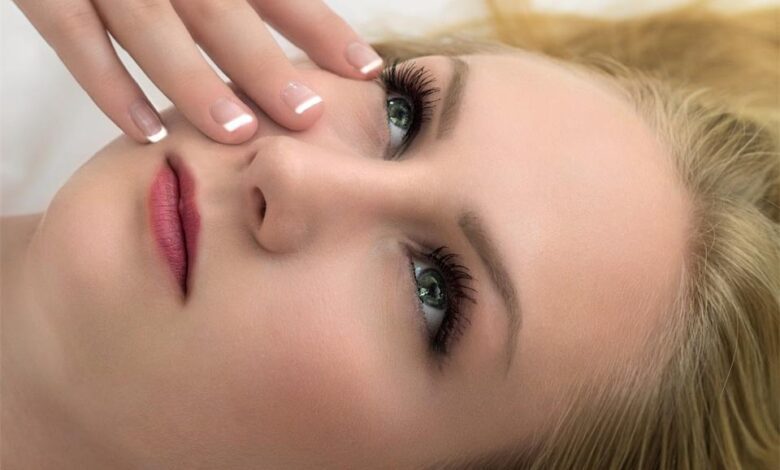What’s The Science Behind Achieving Ageless Skin?

Achieving ageless skin is a goal many of us aspire to, as we strive to maintain a youthful and radiant appearance as we age. While the concept of agelessness may seem elusive, science has made remarkable strides in understanding the biological processes that cause aging and how we can slow them down.
The key lies in understanding skin structure, the impact of environmental factors, and the role of cutting-edge treatments designed to restore and rejuvenate our skin. Read on to learn more.
The Biology of Skin Aging
Our skin is the largest organ in the body, acting as a protective barrier against environmental factors. As we age, the skin undergoes several changes.
At the microscopic level, the production of collagen and elastin—two critical proteins responsible for skin’s firmness and elasticity—begins to slow down. Collagen is a fibrous protein that gives our skin structure, while elastin allows it to stretch and return to its original shape.
As collagen and elastin production decreases, the skin starts to lose its firmness, leading to sagging and the development of wrinkles. The outermost layer of the skin, the epidermis, also thins with age, making it more vulnerable to environmental damage.
This results in a slower turnover of skin cells, meaning dead skin cells build up, contributing to a dull complexion.
Another factor in skin aging is the decrease in the skin’s ability to retain moisture. As we age, the skin’s natural barrier function weakens, leading to increased water loss. This dehydration can make fine lines and wrinkles more pronounced.
Environmental Factors Contributing to Aging
One of the most well-known contributors to premature skin aging is sun exposure. Ultraviolet (UV) radiation from the sun damages collagen and elastin fibers, leading to photoaging—wrinkles, hyperpigmentation, and age spots. This damage accumulates over time, contributing to the visible signs of aging.
In addition to UV exposure, pollution, smoking, and stress can negatively affect the skin. Free radicals, which are unstable molecules generated by pollution and other environmental factors, can damage skin cells and accelerate the aging process.
Advanced Treatments for Ageless Skin
While skincare products are a vital part of maintaining healthy skin, some individuals seek more advanced treatments to address signs of aging more effectively. One option is seeking professional help from reputable centers such as dermani MEDSPA, which offers a range of treatments designed to rejuvenate and restore youthful skin. These treatments include:
- Microneedling: This procedure involves tiny needles that create controlled micro-injuries in the skin, stimulating the production of collagen and elastin. It can help reduce fine lines, wrinkles, and improve overall skin texture.
- Chemical Peels: Chemical peels involve applying a solution to the skin that exfoliates the outer layer, revealing smoother, brighter skin underneath. This process can help with age spots, wrinkles, and sun damage.
- Botox and Dermal Fillers: Botox temporarily relaxes the muscles responsible for wrinkles, while dermal fillers restore volume lost over time. Both treatments can significantly reduce the appearance of fine lines and give the skin a more youthful look.
- Laser Skin Resurfacing: Lasers can be used to target specific layers of the skin, removing damaged tissue and stimulating collagen production. This technique can help treat wrinkles, sun damage, and acne scars.
Skincare Strategies for Ageless Skin
Achieving ageless skin doesn’t happen overnight, but with a combination of a solid skincare routine and advanced treatments, it is possible to maintain a youthful appearance. Here are some science-backed strategies:
- Sun Protection: Sunscreen is your best defense against the harmful effects of UV radiation. Using a broad-spectrum sunscreen with an SPF of 30 or higher every day can protect your skin from premature aging caused by sun exposure.
- Retinoids: Retinoids are a class of vitamin A derivatives that have been shown to increase collagen production, accelerate cell turnover, and reduce the appearance of fine lines and wrinkles. Topical retinoids are a proven method for promoting smoother, more youthful skin.
- Antioxidants: Antioxidants, such as vitamin C and E, help neutralize free radicals and reduce oxidative stress, which can damage skin cells. These powerful ingredients can help protect the skin from environmental damage and improve its overall appearance.
- Moisturization: Keeping the skin hydrated is essential for maintaining its youthful glow. Moisturizers help prevent water loss and keep the skin barrier intact. Look for hydrating ingredients like hyaluronic acid, which can hold up to 1000 times its weight in water.
In conclusion, while there is no way to stop the aging process entirely, we can take proactive steps to slow it down and keep our skin looking vibrant. By understanding the biology of skin aging and incorporating effective skincare practices and treatments into our routines, we can achieve the ageless skin we’ve always desired.
